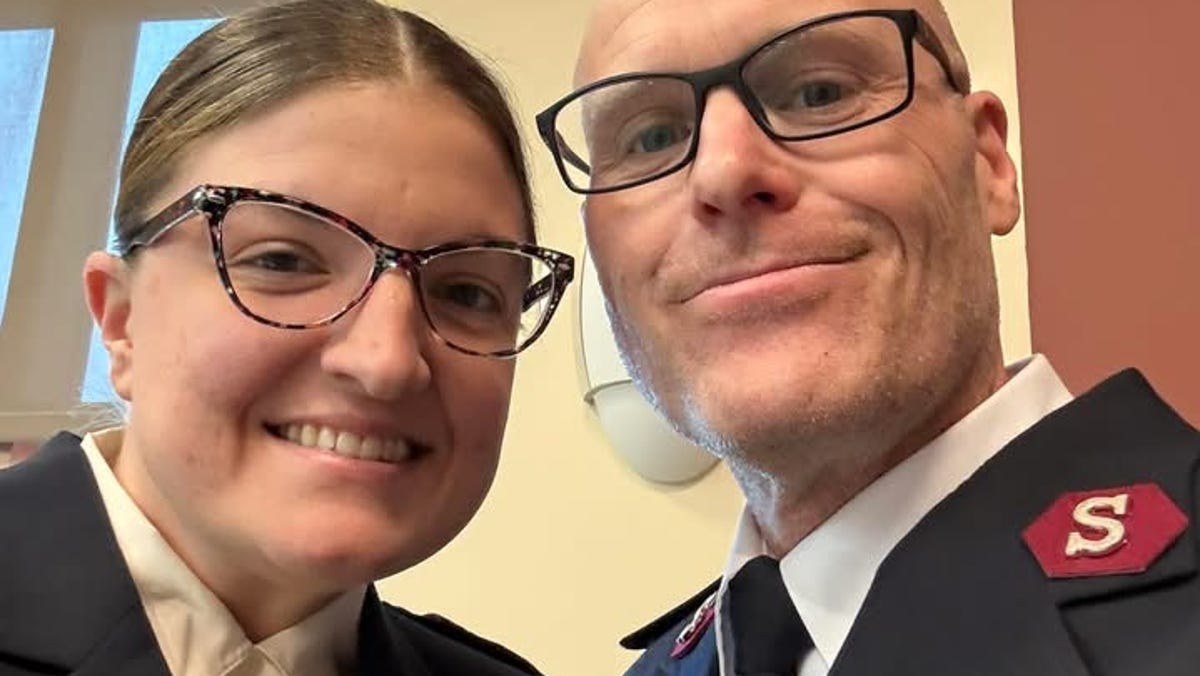
BOSTON — With about one in three Massachusetts residents facing food insecurity as of last year, the Massachusetts Emergency Food Assistance Program (MEFAP) on April 16 commemorated 30 years of supplying food banks with nutritious foods and celebrated the House Ways and Means’ proposed fiscal 2026 budget request of $55 million.
MEFAP, created in 1995, supplies nearly one-third of the food purchased and distributed by the Food Bank Coalition of Massachusetts, which includes The Greater Boston Food Bank, Merrimack Valley Food Bank, Food Bank of Western Massachusetts and the Worcester County Food Bank.
Catherine D’Amato, president and CEO of the Greater Boston Food Bank, which hosted the April 16 event at the State House, emphasized the uniqueness of MEFAP, a “sustainable lifeline” that supports state farmers and vendors and provides those facing food insecurity with fresh and high-nutrient products.
D’Amato noted MEFAP’s growing urgency, with food insecurity rising from one in seven Massachusetts residents before the pandemic to one in three since.
“No one should ever be hungry in the Commonwealth of Massachusetts,” she told the Daily News. “We hope to be able to see the program grow financially so that more people in need can be fed.”
D’Amato recognized the Legislature “is in a very difficult position” due to uncertainty about future federal funding, a worry that reverberated across other speakers at the celebration.
“This is not a Massachusetts problem. This is an every state in America problem,” she said.
Legislator: ‘Assault on programs that benefit people in need’
State Sen. Sal DiDomenico, D-Everett, echoed this concern and said programs such as the Supplemental Nutrition Assistance Program (SNAP), which gives residents money to pay for food, have been on the federal government’s radar since day one.
“There’s an assault on programs that benefit people in need,” he said. “Because of that, we have to prepare even more and give more at the state level to combat what is happening at the federal level.”
DiDomenico said the original $55.5 million ask from MEFAP was “reasonable,” especially after the pandemic that “exacerbated” hunger in the state.
“MEFAP is absolutely the lifeline for so many people in this community and around our state,” he said.
Jean McMurray, CEO of the Worcester County Food Bank, said the number of individuals facing food insecurity is at an “all-time high,” due to rising costs for housing, utilities and other basic needs.
“There is not one hunger-free community in the commonwealth,” McMurray said. “These families are our neighbors living next door, around the corner and across town.”
Meals are distributed throughout all of the state’s 351 cities and towns through a network of more than 900 community food providers.
In Milford, the increase in demand across the state mirrors a surge in the area.
Milford pantry reports 500% increase in visitors since ’21
Maj. Kevin Polito, CEO and pastor for The Salvation Army Milford, said the number of families visiting its food pantry has increased by 500% since fall 2021. The Worcester County Food Bank is the primary source of food for the Salvation Army.
The Salvation Army pantry operates every other week. In March it distributed 454 food boxes, its highest monthly total since Polito arrived in Milford in June 2021. While Polito used to visit the food bank every other week, he now visits it every week due to growing demand.
Polito attributed the increased demand to several factors: more people venturing out post-pandemic, fear of benefits being cut, inflation and rising food costs.
“All those factors have kind of coalesced and have come together to create really a perfect storm where we just keep getting busier and busier,” he said.
The pantry’s official coverage area is Milford, Hopedale and Mendon, but Polito has also served individuals from Framingham, Upton, Bellingham, Franklin, Northbridge and even Rhode Island.
“I’ve always operated out of the principle that if you come to me for food, I don’t care where you’re from, I’m going to help you,” he said.
However, after providing 150 families with assistance on April 14-15, the pantry ran out of food.
“I’m gonna have to make some tough decisions about possibly pulling back on that,” Polito said. “I don’t want to do that, because I like to give people the benefit of the doubt. If you’re willing to come all the way here, you’re probably in some dire need for some food.”
Ashley Randle, commissioner of the Massachusetts Department of Agricultural Resources, highlighted the impact MEFAP has on local economies, especially in state-based companies like farms and fisheries who in fiscal 2024 received $18 million. She thanked legislators for championing the program in the budget every year.
“Partnership and collaboration is more critical than ever,” Randle said. She also commended how the state has “stepped up to support farmers and fisheries and our most food insecure individuals, even when that funding may not be there at the federal level.”
发表回复